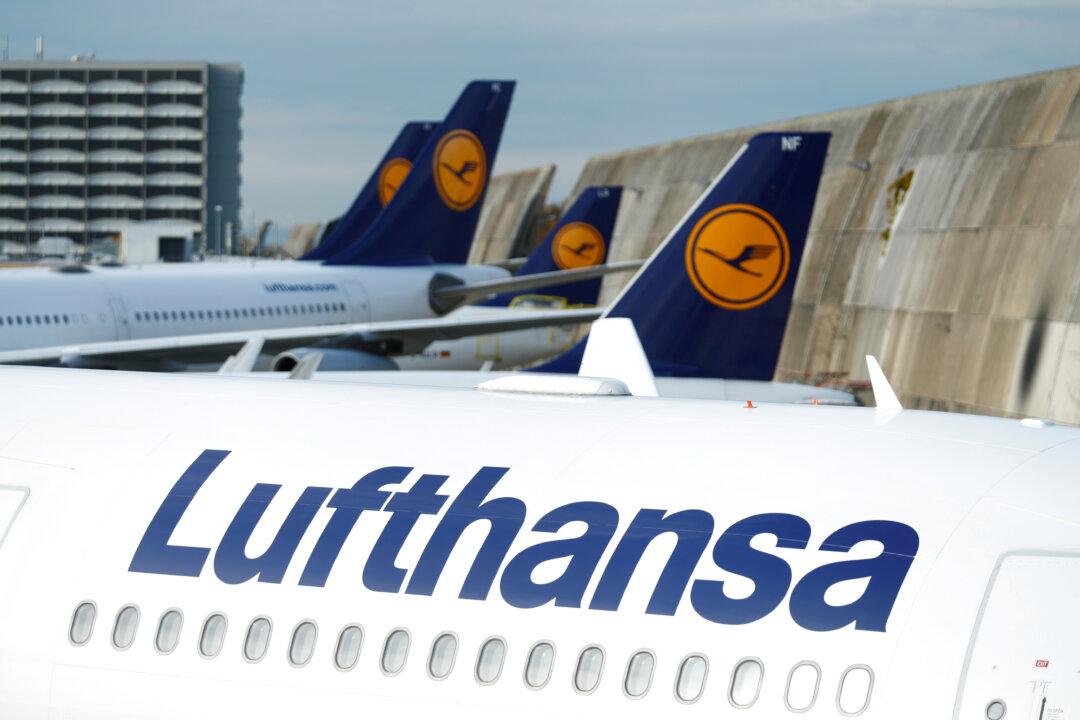FRANKFURT/BERLIN—The German government and Lufthansa, which has been hit hard by the CCP virus pandemic, have reached a preliminary deal on a 9 billion euro ($9.8 billion) bailout.
The airline has been in talks with Berlin for weeks over aid to help it to cope with what is expected to be a protracted travel slump, but the carrier has been wrangling over how much control to yield in return for support.





